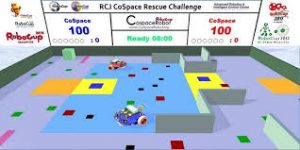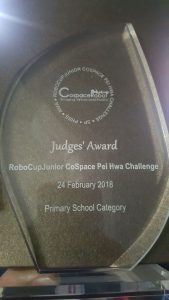When I first prepared for teaching skills relevant to CoSpace Rescue I thought this would be a relatively poor platform for learning proper software engineering techniques and computational thinking. After teaching CoSpace-based curriculum for a few months in both Primary (Zhenghua) and Secondary (Pei Hwa) CCAs I have to admit the virtual simulation platform is starting to grow on me.

Unfortunately, as I have become more enthusiastic about the CoSpace framework, I’ve also simultaneously realized that my first instincts about it are also true. As a gamification system for coding, CoSpace Rescue works well. For the Primary School level, the GUI really helps in removing obstacles to getting started, as opposed to an all-text-based coding environment. Kids can quickly add rules and test various event-based decision trees, without knowing any coding language.
They quickly internalize boolean operator concepts, and competing decision priorities and choices. It isn’t a very big jump from that to utilizing state variables to create simple state machines. Still, it has been challenging to get students used to this environment to shed the security and comfort of the game GUI with the freedom and efficiency of pure and abstract C coding. Without the ability to abstract from the Simulation Gaming environment to the underlying C code, the students are unable to make the leap of faith and leap of computational confidence to go hacking. That’s where the benefits of the platform start hitting a serious wall – students inculcated in nothing else for several years turn into great CoSpace Rescue developers, but not great developers… A work in progress.
Still, I’m proud of the Junior team at Zhenghua who managed to clinch the ambiguous “Judge’s Award”!


